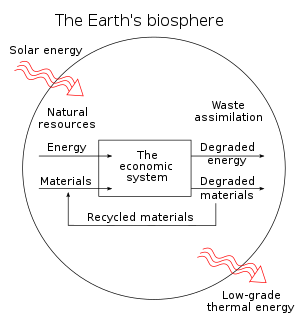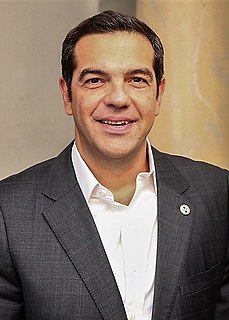A Quote by David Suzuki
Over and over, the economy has determined the extent of our response, but how much value does it place on breathable air, drinkable water, edible food and stable weather and climate? Surely the economy is the means to a better future, not an end in itself. Surely it must be subordinate to a rich, diverse ecosphere that sustains all life.
Related Quotes
If gold has been prized because it is the most inert element, changeless and incorruptible, water is prized for the opposite reason -- its fluidity, mobility, changeability that make it a necessity and a metaphor for life itself. To value gold over water is to value economy over ecology, that which can be locked up over that which connects all things.
If in the human economy, a squash in the field is worth more than a bushel of soil, that does not mean that food is more valuable than soil; it means simply that we do not know how to value the soil. In its complexity and its potential longevity, the soil exceeds our comprehension; we do not know how to place a just market value on it, and we will never learn how. Its value is inestimable; we must value it, beyond whatever price we put on it, by respecting it.
To change our national economic story from one of financial speculation to one of future growth, we need a third industrial revolution: a green revolution. It will transform our economy as surely as the shift from iron to steel, from steam to oil. It will lead us toward a low-carbon future, with cleaner energy and greener growth. With an economy that is built to last - on more sustainable, more stable foundations
I have never believed we had to choose between either a clean and safe environment or a growing economy. Protecting the health and safety of all Americans doesn't have to come at the expense of our economy's bottom line. And creating thriving companies and new jobs doesn't have to come at the expense of the air we breathe, the water we drink, the food we eat, or the natural landscape in which we live. We can, and indeed must, have both.
We no longer see the world as a single entity. We've moved to cities and we think the economy is what gives us our life, that if the economy is strong we can afford garbage collection and sewage disposal and fresh food and water and electricity. We go through life thinking that money is the key to having whatever we want, without regard to what it does to the rest of the world.
Overpopulation is the problem of the third and fourth World; over-consumption is the problem of the West. The average American child this year will consume as much of the world's resources as twenty children born in India. Deliberate and calculated waste is the central aspect of the American economy. We over-eat, over-buy, and over-built, spewing out our toxic wastes upon the earth and into the air.
Today it's fashionable to talk about the New Economy, or the Information Economy, or the Knowledge Economy. But when I think about the imperatives of this market, I view today's economy as the Value Economy. Adding value has become more than just a sound business principle; it is both the common denominator and the competitive edge.
If I've learnt anything over the last six years it's that the most important thing is the strength of our economy. That is how we pay for our NHS, how we build schools, how we provide opportunities for people. And I'm in absolutely no doubt that our economy will be stronger if we stay in and will be weaker and at risk if we leave.
What is the point of worrying oneself too much about what one could or could not have done to control the course one's life took? Surely it is enough that the likes of you and I at least try to make our small contribution count for something true and worthy. And if some of us are prepared to sacrifice much in life in order to pursue such aspirations, surely that in itself, whatever the outcome, cause for pride and contentment.
Only by transforming our own economy to one of peace can we make possible economic democracy in the Third World or our own country. The present economy generates wars to protect its profits and its short-term interests, while squandering the future. Unless we transform the economy, we cannot end war.




































